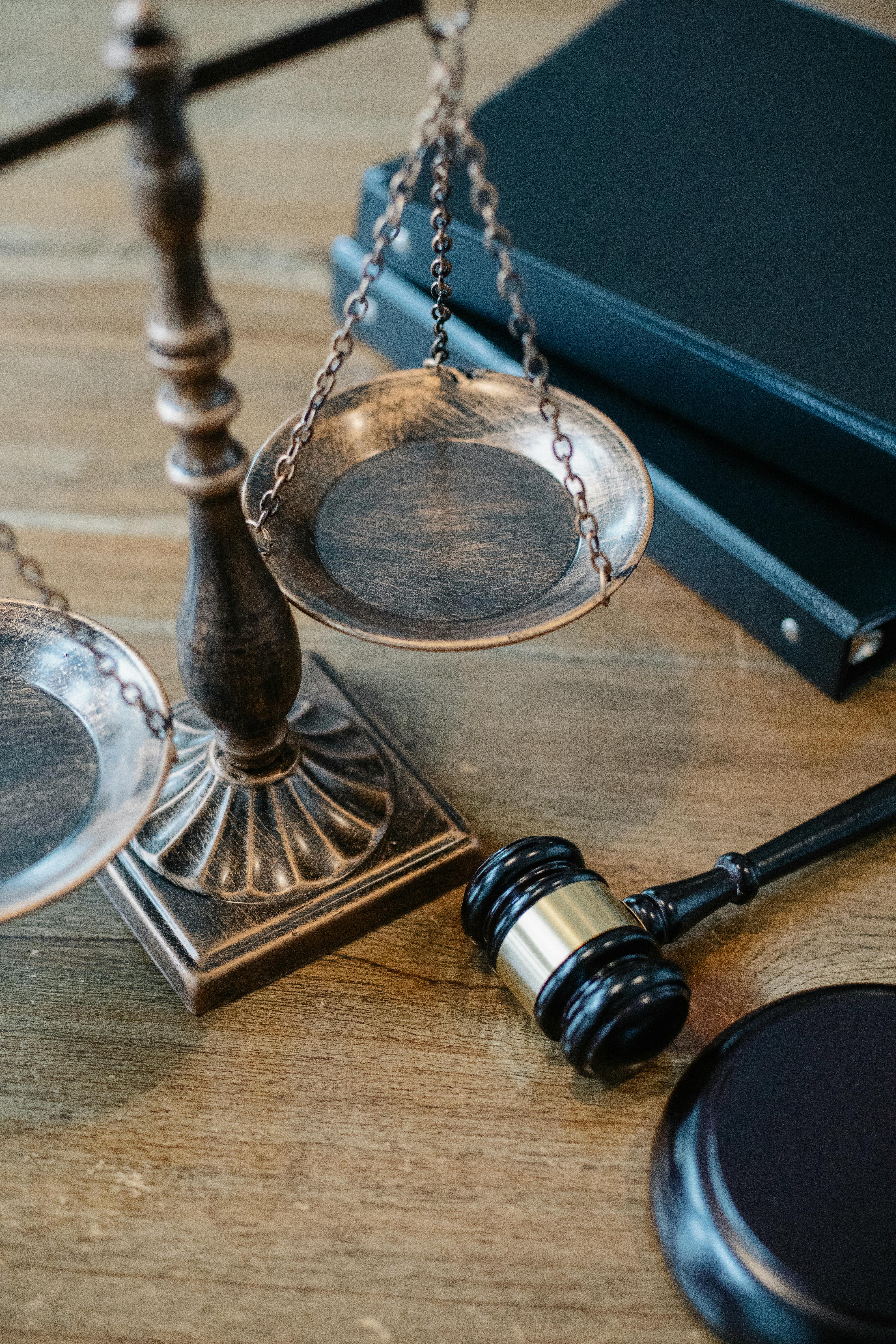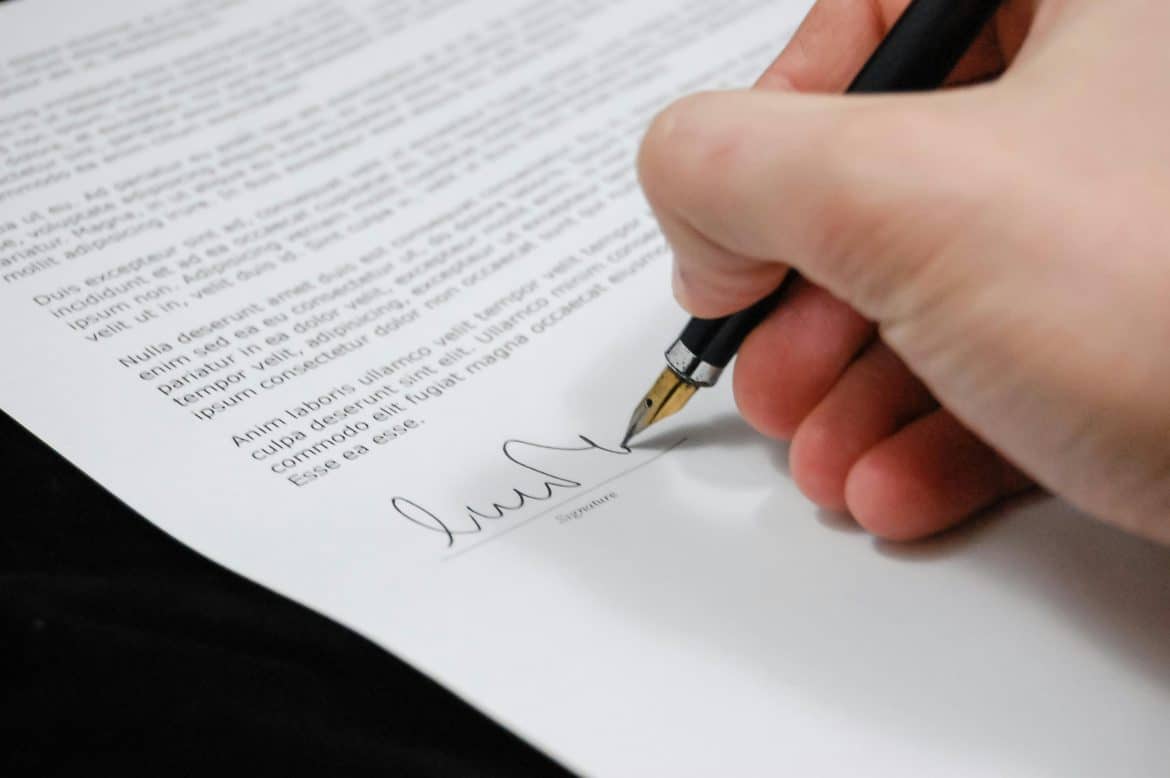Imagine you find yourself in the unfortunate situation of being sued for a debt. It's a daunting prospect, but fear not - this article is here to provide you with essential legal advice on how to successfully have a debt lawsuit dismissed. With helpful tips and strategies, we will guide you through the process, equipping you with the knowledge and confidence to navigate the complex world of debt litigation. So, take a deep breath, relax, and let's delve into the world of debt lawsuits and how to come out on top.
Understanding the Debt Lawsuit
Understanding the basics of a debt lawsuit
If you find yourself facing a debt lawsuit, it's important to understand the basics of how these lawsuits work. A debt lawsuit is typically filed by a creditor or a debt collection agency in order to collect a debt that you owe. The creditor or collection agency will usually provide documentation to support their claim, such as credit agreements, account statements, or payment records. It's important to familiarize yourself with the process of a debt lawsuit to ensure that you are well-prepared to handle it.
Knowing your rights as a debtor
As a debtor, you have certain rights when it comes to debt lawsuits. It's crucial to be aware of these rights in order to protect yourself and your assets. One important right is the right to proper notice. The creditor or collection agency must provide you with a written notice informing you of the debt and giving you an opportunity to dispute it. You also have the right to request and receive information about the debt, such as the original creditor and the amount owed. Additionally, you have the right to be treated fairly and to be free from harassment or abusive practices. Familiarize yourself with these rights so that you can assert them effectively.
Recognizing common debt lawsuit claims
Debt lawsuits can be based on various types of claims. It's important to recognize the most common claims that creditors or collection agencies may assert against you. One common claim is the breach of contract claim, which alleges that you failed to make payments as agreed upon in a credit agreement. Another common claim is the account stated claim, which asserts that you agreed to the amount owed through your actions or statements. Additionally, creditors may try to sue you on an unjust enrichment claim, arguing that you benefited from the goods or services financed by the debt. By understanding these common claims, you can better evaluate the validity and strength of the lawsuit against you.
Consulting with an Attorney
Importance of seeking legal advice
When facing a debt lawsuit, it's crucial to seek legal advice from an experienced attorney. An attorney can help you understand the complexities of the legal process, explain your rights, and provide guidance on the best course of action. They can also assess the strengths and weaknesses of your case, help you gather evidence, and represent you in court if necessary. Without proper legal advice, you may inadvertently harm your case or fail to assert your rights effectively. It's always recommended to consult with an attorney to ensure the best possible outcome in your debt lawsuit.
Qualities to look for in a debt lawsuit attorney
Choosing the right attorney to represent you in a debt lawsuit is essential for a successful outcome. When selecting an attorney, there are several qualities to consider. First and foremost, look for an attorney with experience in debt collection defense and debt-related lawsuits. This expertise will ensure that your attorney understands the intricacies of the law and can develop a strong defense strategy tailored to your specific case. Additionally, seek an attorney who is responsive and communicative, as effective communication is crucial throughout the legal process. Finally, consider an attorney who offers a fair and transparent fee structure to ensure that you receive quality representation at a reasonable cost.
Initial consultation with an attorney
Before hiring an attorney, it's common practice to schedule an initial consultation. During this consultation, you'll have the opportunity to discuss the details of your debt lawsuit and ask any questions you may have. It's important to come prepared with all relevant documents and information so that the attorney can assess the merits of your case. The attorney will likely ask questions about your financial situation, the nature of the debt, and any previous communication with the creditor or collection agency. This consultation will allow both you and the attorney to determine if you are a good fit for each other and if proceeding with legal representation is in your best interest.

This image is property of images.pexels.com.
Evaluating the Lawsuit
Reviewing the lawsuit documentation
Once you have consulted with an attorney, it's crucial to review the lawsuit documentation carefully. The lawsuit documentation typically includes a summons, which notifies you of the lawsuit and provides instructions on how to respond, and a complaint, which outlines the creditor's or collection agency's claims against you. Take the time to thoroughly read and understand these documents, noting any deadlines for responding or filing motions.
Identifying potential weaknesses or discrepancies
As you review the lawsuit documentation, it's important to identify any potential weaknesses or discrepancies in the creditor's or collection agency's claims. Look for any inconsistencies in the documentation or errors in the information provided. For example, check if the credit agreement is complete and accurately represents the terms of the debt. Additionally, review the account statements or payment records to ensure their accuracy and legitimacy. By identifying potential weaknesses or discrepancies, you can strengthen your defense strategy and potentially challenge the validity of the debt lawsuit.
Gathering evidence to challenge the lawsuit
To effectively challenge a debt lawsuit, it's crucial to gather evidence that supports your defense. This evidence may include any relevant documents, such as credit agreements, account statements, or payment records. It's important to keep in mind that the burden of proof lies with the creditor or collection agency, so you should focus on gathering evidence that casts doubt on their claims. For example, you may be able to gather evidence that demonstrates errors in their documentation or inconsistencies in their records. Consult with your attorney on the specific evidence needed to strengthen your case and challenge the lawsuit effectively.
Debt Validation Process
Understanding debt validation
Debt validation is an important process that allows you to request proof from the creditor or collection agency that the debt is valid and that they have the legal right to collect it. Under the Fair Debt Collection Practices Act (FDCPA), you have the right to request debt validation within a specific time frame after receiving a written notice of the debt. Debt validation requires the creditor or collection agency to provide you with information such as the original creditor's name, the amount owed, and proof of ownership of the debt. Understanding this process is crucial for protecting your rights as a debtor.
Requesting debt validation from the creditor or collection agency
To request debt validation, you must send a written request to the creditor or collection agency within the specified time frame. This request should be sent via certified mail with a return receipt to ensure proof of delivery. In your request, be specific about the information you are seeking and include any relevant details, such as the account number or the date of the last payment made. It's important to keep copies of all correspondence and maintain a record of the dates and times of your communication.
Challenging the validity of the debt
Once you have received the debt validation documentation from the creditor or collection agency, it's essential to carefully review it for accuracy and legitimacy. Look for any discrepancies or errors that may cast doubt on the validity of the debt. For example, check if the documentation includes your correct personal information, the correct amount owed, and proof of ownership of the debt. If you find any issues or if the creditor or collection agency fails to provide the requested information, you may be able to challenge the validity of the debt. Consult with your attorney to determine the best course of action based on the specific circumstances of your case.

This image is property of images.pexels.com.
Statute of Limitations
Understanding the statute of limitations on debt
The statute of limitations refers to the time period within which a creditor or collection agency can legally sue you to collect a debt. Each state has its own statute of limitations for different types of debts, and it's important to understand the specific laws in your jurisdiction. Generally, the statute of limitations starts from the date of the last activity on the debt, such as a payment or a written acknowledgment of the debt. Once the statute of limitations has expired, the creditor or collection agency can no longer file a lawsuit to collect the debt.
Determining whether the debt is time-barred
In order to assert the statute of limitations as a defense, you must determine whether the debt in question is time-barred. This requires calculating the time that has elapsed since the last activity on the debt and comparing it to the statute of limitations in your state. If the statute of limitations has expired, the debt is considered time-barred, and you may have a valid defense to the lawsuit. However, it's important to note that the statute of limitations can be restarted under certain circumstances, such as making a partial payment on the debt or entering into a new payment agreement. Consult with your attorney to determine whether the debt in your case is time-barred.
Asserting the statute of limitations as a defense
If you believe that the debt in your case is time-barred, you can assert the statute of limitations as a defense in your response to the lawsuit. In your response, clearly state that the debt is time-barred based on the applicable statute of limitations. Provide any evidence or documentation that supports your assertion, such as account statements or payment records that demonstrate the last activity on the debt. It's crucial to consult with your attorney to ensure that you assert the statute of limitations defense correctly and effectively in your case.
Affirmative Defenses
Exploring potential affirmative defenses
In addition to challenging the creditor's or collection agency's claims, you may be able to assert affirmative defenses to the debt lawsuit. Affirmative defenses are legal arguments that, if successfully proven, can absolve you of liability for the debt. It's important to explore potential affirmative defenses with your attorney to determine if any apply to your specific case. Common affirmative defenses in debt lawsuits include unconscionability, lack of standing, and violations of the Fair Debt Collection Practices Act (FDCPA).
Unconscionability
One potential affirmative defense is unconscionability, which refers to situations where the terms of the debt or the creditor's actions are so unfair or oppressive that they shock the conscience. In other words, if you can demonstrate that the terms of the debt were extremely unfair or that the creditor engaged in unethical or deceptive practices, you may have a valid unconscionability defense. Consult with your attorney to determine if this defense is applicable to your case.
Lack of standing
Another potential affirmative defense is lack of standing, which means that the creditor or collection agency bringing the lawsuit does not have the legal right to enforce the debt. To assert this defense, you must gather evidence that calls into question the creditor's ownership or right to collect the debt. This evidence may include documentation showing that the debt was sold or assigned multiple times, or that the creditor lacks the necessary documentation to prove ownership. Consult with your attorney to determine if lack of standing is a viable defense in your case.
Violation of Fair Debt Collection Practices Act (FDCPA)
If the creditor or collection agency has engaged in unfair or abusive practices in their attempts to collect the debt, you may be able to assert a violation of the Fair Debt Collection Practices Act (FDCPA) as an affirmative defense. The FDCPA prohibits certain practices, such as harassment, false or misleading statements, or contacting third parties about your debt. If you can demonstrate that the creditor or collection agency violated the FDCPA, you may have a strong defense to the debt lawsuit. Consult with your attorney to determine if this defense applies to your case and gather any evidence supporting your claim.

This image is property of images.pexels.com.
Motion to Dismiss
Filing a motion to dismiss
If you believe that the debt lawsuit against you lacks legal merit, you may be able to file a motion to dismiss. A motion to dismiss asks the court to dismiss the lawsuit based on specific legal grounds, such as lack of jurisdiction, failure to state a claim, or improper service of process. Before filing a motion to dismiss, consult with your attorney to determine if this is the appropriate course of action based on the circumstances of your case. It's important to follow the proper legal procedures and requirements when filing a motion to dismiss.
Grounds for dismissal
There are various grounds on which a motion to dismiss can be based. Lack of jurisdiction is a common ground, which means that the court does not have the authority to hear the case. Failure to state a claim is another common ground, which means that the lawsuit fails to allege sufficient facts to support a valid legal claim against you. Improper service of process can also be a valid ground for dismissal if the creditor or collection agency failed to properly serve you with the lawsuit documentation. Consult with your attorney to determine the specific grounds for dismissal that may apply to your case.
Preparing and presenting the motion
Preparing a motion to dismiss requires careful attention to detail and a clear understanding of the legal arguments being asserted. Your attorney will help you craft a persuasive motion that clearly and concisely presents the legal grounds for dismissal. The motion should include a memorandum of law that provides legal authority supporting your arguments. Once the motion is prepared, it must be filed with the court according to the specified procedures and deadlines. Your attorney will guide you through this process and ensure that the motion is presented effectively to advocate for the dismissal of the lawsuit.
Attending the hearing
If the court grants your motion to dismiss, the lawsuit will be dismissed, and the creditor or collection agency will no longer be able to pursue the debt through that specific lawsuit. However, if the court denies the motion to dismiss, the lawsuit will continue, and you will need to proceed with your defense strategy. It's important to attend the hearing for the motion to dismiss to present your arguments and provide any necessary evidence. Your attorney will represent you in court and advocate for the dismissal of the lawsuit based on the grounds asserted in the motion.
Negotiating a Settlement
Considering settlement options
If you prefer to avoid the time, expense, and uncertainty of trial, you may want to consider negotiating a settlement with the creditor or collection agency. A settlement is an agreement between you and the creditor or collection agency that resolves the debt without proceeding to trial. When considering settlement options, carefully evaluate the terms and conditions of the proposed settlement. Take into account factors such as the total amount to be paid, the payment schedule, any potential impact on your credit, and the release of any further liability. Consult with your attorney to ensure that the settlement agreement is fair and reasonable.
Negotiating with the creditor or collection agency
When negotiating a settlement, it's crucial to approach the process strategically and with the guidance of your attorney. Start by assessing your financial situation and determining what you can realistically afford to pay. Use this information as a basis for your negotiations and be prepared to make counteroffers based on your ability to pay and the strength of your defense. It's important to communicate clearly and professionally with the creditor or collection agency, documenting all conversations and agreements in writing. Your attorney will assist you throughout the negotiation process and help you achieve the best possible outcome.
Drafting a settlement agreement
Once a settlement agreement has been reached, it's important to document the terms in a formal settlement agreement. This agreement should clearly outline the terms of the settlement, such as the total amount to be paid, the payment schedule, and any other conditions or provisions agreed upon. It's crucial to review the settlement agreement carefully and ensure that it accurately reflects the terms that were negotiated. Consult with your attorney to review and finalize the settlement agreement before signing it. Once signed, the agreement becomes a legally binding contract, and both parties are obligated to fulfill their respective obligations.
Preparation for Trial
Gathering and organizing evidence
If your debt lawsuit proceeds to trial, thorough preparation is essential. Start by gathering and organizing all relevant evidence that supports your defense. This evidence may include documents such as credit agreements, account statements, or payment records. It's crucial to ensure that all evidence is reliable, accurate, and admissible in court. Organize the evidence in a logical manner that allows for easy reference and presentation during the trial. Your attorney will help you assess the strength of the evidence and guide you in determining which evidence is most persuasive for your case.
Preparing witness testimony
Witness testimony can be crucial in supporting your defense at trial. Identify any witnesses who may have relevant knowledge or information that can help strengthen your case. This may include witnesses who can testify about the terms of the debt, the accuracy of the account statements, or any interactions with the creditor or collection agency. Prepare your witnesses by discussing their expected testimony, reviewing any relevant documents or evidence with them, and ensuring that they are familiar with the court procedures. Your attorney will guide you through the process of preparing witness testimony and help you present a compelling case in court.
Understanding court procedures
To adequately prepare for trial, it's important to familiarize yourself with the court procedures that will be followed. This includes understanding the order in which the case will be presented, the rules of evidence that must be followed, and the roles and responsibilities of each party involved. It's crucial to adhere to all court rules and deadlines, as failure to do so may have negative consequences for your case. Consult with your attorney to ensure a clear understanding of the court procedures and to address any specific questions or concerns you may have.
Attending the Trial
Presenting your case in court
Attending the trial for your debt lawsuit will require thorough preparation and effective presentation of your case. It's important to have a clear strategy in mind and to focus on presenting the evidence and arguments that support your defense. Begin by making an opening statement that outlines the main points of your defense and sets the stage for the rest of the trial. Present your evidence in a logical and persuasive manner, referring to any relevant documents or witness testimony. Remember to remain calm, professional, and respectful throughout the trial to maintain a positive impression on the judge.
Cross-examining the plaintiff's witnesses
During the trial, the plaintiff may present witnesses to testify in support of their claims. As the defendant, you have the right to cross-examine these witnesses. Cross-examination is an opportunity to question the credibility and accuracy of the witness's testimony and to elicit information that supports your defense. Prepare a list of questions to ask the plaintiff's witnesses, focusing on any inconsistencies, biases, or lack of knowledge that may weaken their testimony. Your attorney will guide you through the cross-examination process and help you effectively challenge the plaintiff's case.
Rebutting the plaintiff's claims
In addition to cross-examining the plaintiff's witnesses, it's important to present a strong rebuttal to the plaintiff's claims. This involves presenting evidence and arguments that directly contradict or undermine the plaintiff's case. Carefully consider the strengths and weaknesses of the plaintiff's claims and develop a strategy to counter them. Present your rebuttal in a clear and concise manner, referring to any relevant evidence or testimony. Your attorney will assist you in developing a persuasive rebuttal that highlights the weaknesses in the plaintiff's case and supports your defense.
In conclusion, understanding the debt lawsuit process and your rights as a debtor is crucial when facing a debt lawsuit. By consulting with an experienced attorney, evaluating the lawsuit, understanding debt validation and the statute of limitations, exploring potential affirmative defenses, filing a motion to dismiss if appropriate, negotiating a settlement, and preparing for trial, you can navigate the debt lawsuit process effectively and increase your chances of a successful outcome. Remember to consult with your attorney throughout the process to ensure that your rights are protected and that you have the best possible defense.

